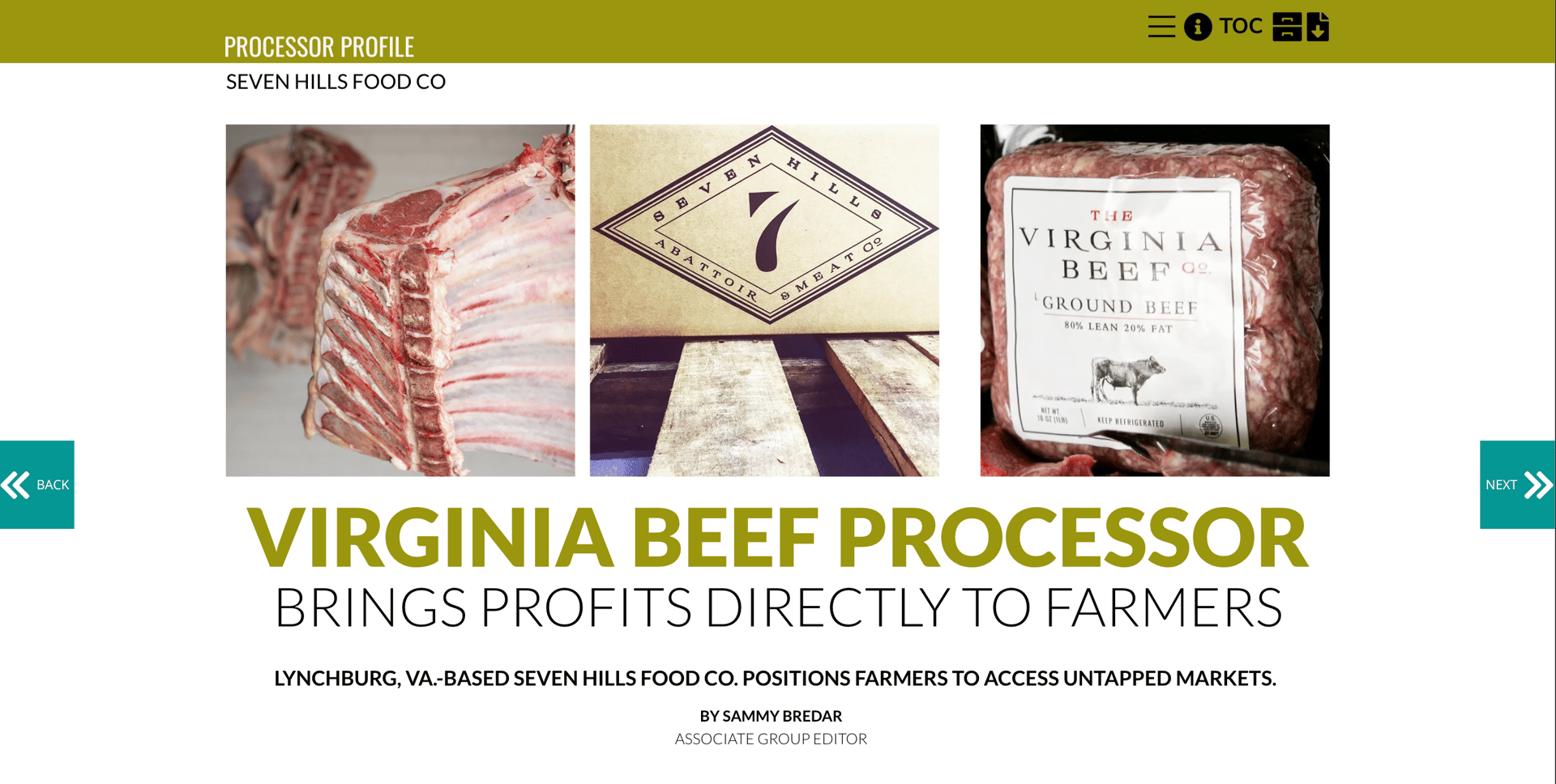2021 deli
Sausage Report
2024
Seaboard Foods
2024 Processor of the Year
Cover Story: Plant-Based MeatS CATEGORY REPORT
aim to
change minds
New formulations
Product development focuses on delivering on taste, texture, nutrition and value.
Chief Editor
By Fred Wilkinson
Combined sales of refrigerated and frozen plant-based meat alternatives generated $74.1 million in February 2025, a double-digit decrease in dollars, units and volume coming after several months of single-digit declines, according to Circana retail sales analysis.
Sales for refrigerated plant-based meat alternatives found in the meat case or produce department fell 20.8% during February 2025 compared to February 2024.
Combined with average number of refrigerated plant-based meat alternatives per store declining 14.8% year-on-year, Circana analysis suggests this may point to a reduction in assortment that is affecting year-over-year sales levels.
Moving this category back to growth looks like an uphill battle, but Shanda Franzen, Cargill marketing manager, alternative protein, says the manufacturer is focusing on delivering on taste, texture, nutrition and value to lure consumers into giving plant-based meat products a second try.
“In the rush to develop new products, not all first-generation entries met consumers’ standards,” Franzen said. “We heard that and recognized the industry needed to do a better job meeting consumers’ expectations around things like taste, texture, aroma, nutrition and value.”
Cargill set out to make these products more attractive to consumers.
“Recently, we did a product cutting comparing our first-wave products to some of our recent formulations,” she said. “The difference in flavor, texture and juiciness was remarkable. The products we are making today are so much better than those of just a few years ago. They taste meatier, with savory and umami flavors that come through in every bite. We’ve made significant gains on the texture side, too. The ‘chew down’ is much closer to traditional animal meat. A big reason for the gains is that today's ingredients and flavor systems were developed specifically for alt-meat products. As a result, we’re able to provide consumers with a better overall eating experience.”
Currently, much of the competition comes from within the plant-based category, Franzen said. However, as plant-based meat alternatives continue to improve in taste, texture, overall eating experience and value, they will increasingly compete with animal-based proteins.
“We anticipate a future where plant-based options go toe-to-toe with traditional meat products, with consumers making choices between the two categories based on their eating occasion needs,” she said, adding that consumers are seeking more protein options for health and satiety. “At the same time, they’re looking for variety and new ways to enjoy familiar foods. That’s where plant-based meat alternatives can play a key role, offering consumers another option alongside traditional choices like beef, poultry and seafood.”
Cargill aims to be a leader in plant-based meats, Franzen said.
“We are uniquely positioned to achieve that goal,” she said. “We bring together deep animal protein and plant ingredient knowledge, and we’re the only supplier to span the full value chain, from ingredients to finished product manufacturing. That direct feedback loop helps us create better ingredients, because we can see where the gaps are and bring together cross-functional teams to tackle challenges head-on. Our knowledge, access to ingredients across the supply chain, expertise in animal proteins and capacity to produce finished products allows us to co-create new solutions aligned with consumers’ preferences and evolving needs.”
Franzen said foodservice has proven to be a great entry point for consumers to try plant-based meats.
“That’s because of the magic and sophistication of back-of-the-house culinary chefs, who are delivering exceptional flavors and eating experiences,” she said. “Restaurants are eager to experiment with these products, making them their own and introducing consumers to innovative – and delicious – plant-based meat alternatives. “

Photo courtesy of Prime Roots

Photo courtesy of Cargill
Balanced approach
Food System Innovations believes there is a plant-based proteins growth opportunity for the meat industry in: balanced protein — meat products that combine animal and plant-based ingredients.
Balanced proteins are meat products that preserve the taste of conventional meat while diversifying the nutritional profile and reducing environmental impact by replacing at least 30% of animal ingredients with alternative proteins or whole plant-based foods.
Food System Innovations says complementing traditional meat with plant-based ingredients has the potential to increase margins, diversify risky supply chains, and gain a foothold in new consumer groups and meat occasions — all while keeping meat at the center of the plate.
Opening image: Cargill




